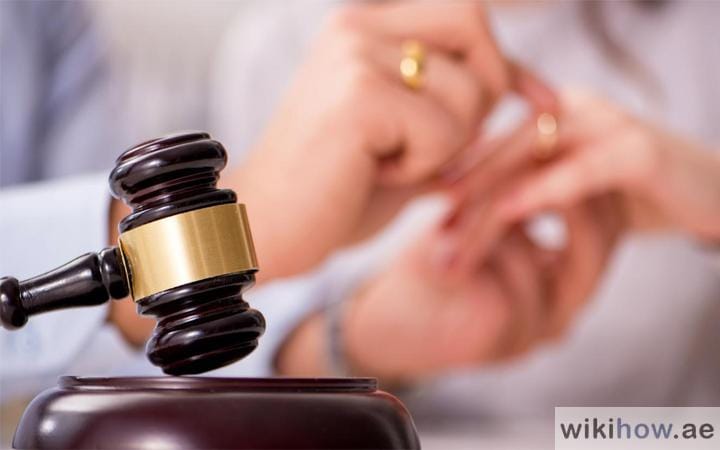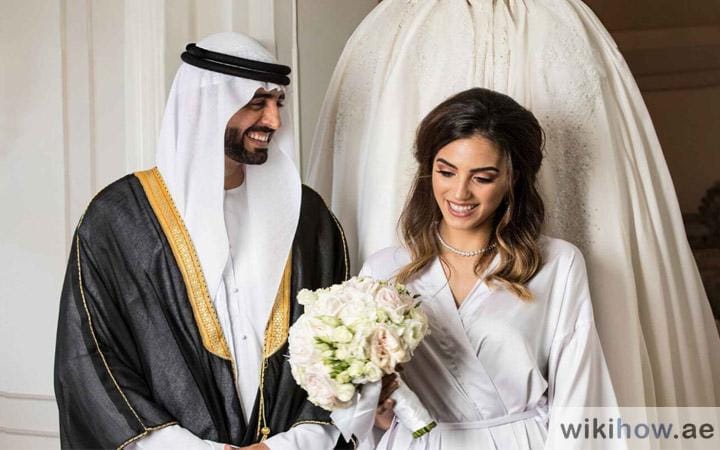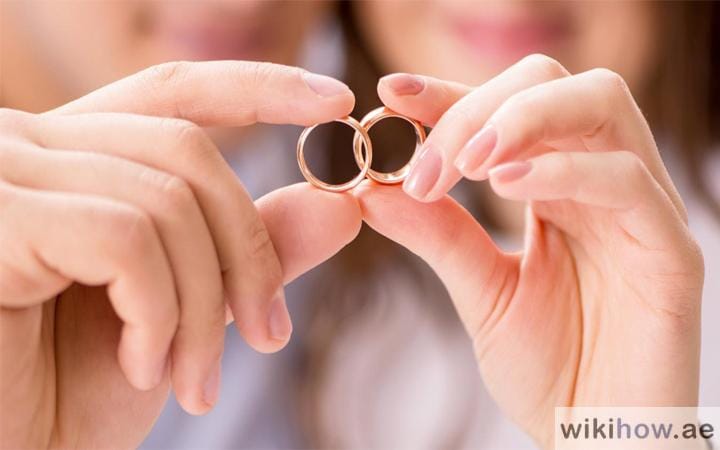Marriage Laws in UAE: Everything You Need to Know (2026 Guide)

Marriage is a legally recognized union with ramifications for inheritance, child custody and residency rights, making it more than just a personal milestone. The UAE’s marriage laws are distinctive because they incorporate contemporary civil law that pertains to both non-Muslims and expatriates with Islamic Sharia principles. Whether you are an expat or a citizen of the United Arab Emirates, it is imperative that you comprehend these laws if you intend to get married there. One of the most culturally diverse countries in the Middle East is the United Arab Emirates, which is home to millions of expatriates. Marriage laws have changed over time to accommodate various legal systems, nationalities and faiths as a result of this diversity. In the following article, we will provide a complete explanation of Marriage laws in UAE.
Historical Evolution of Marriage Regulations in UAE
The evolution of UAE marriage laws is a reflection of the country’s shift from long-standing cultural customs to a contemporary legal framework that can serve a wide range of people. Examining the historical development of these laws can help us better understand how the UAE successfully reconciles Islamic Sharia principles with the evolving needs of its multicultural society.

Traditional Marriage Practices Before Modern Laws
In accordance with Islamic Sharia law and tribal traditions, families arranged marriages as alliances between clans prior to the federation of the United Arab Emirates in 1971. The groom was required to pay a dowry (mahr) as a sign of respect and responsibility, and the contract had to be approved by the bride’s guardian (wali). In order to ensure legitimacy, marriages were witnessed by adult males and mutual consent was valued, even though early marriages were common. Marriages were registered within communities and religious institutions rather than through official state registration, and these customs strengthened tribal unity.
Acceptance of Civil Marriage Clauses
Given the UAE’s rapid rise as a global hub and its substantial expat population, the government enacted civil marriage laws to provide non-Muslim and mixed-faith couples with alternative legal options for marriage. Dubai followed suit with simplified services for foreigners after Abu Dhabi established the first non-Muslim Civil Family Court in 2021. The UAE is one of the most tolerant nations in the Gulf, offering couples the choice of a traditional Sharia marriage or a civil union. These changes show how committed the UAE is to inclusivity, tolerance, and modernization.
The UAE’s Laws Governing Marriage
Some emirates, such as Abu Dhabi, have set up their own civil family courts to accommodate non-Muslims, even though the Federal Personal Status Law sets the general rules for marriage in the United Arab Emirates. Sharia law, which governs basic aspects like guardianship, consent, dowries, and marriage contracts, remains the cornerstone for Muslim citizens and residents. Both Muslims and non-Muslims are guaranteed legally recognized choices that take into account their individual circumstances and religious beliefs thanks to this dual system, which forms an essential part of broader UAE family laws and regulations.
UAE Marriage Laws for Muslims
According to UAE marriage laws, a Muslim man may marry a woman of another Abrahamic faith, such as Christianity or Judaism, but both partners must be Muslims. A valid marriage contract must be signed in front of witnesses, and the marriage cannot be recognized without the consent of the bride’s guardian or wali. Muslim women are prohibited from marrying non-Muslim men unless the man converts to Islam, whereas Muslim men are granted greater freedom in interfaith unions. This framework demonstrates how Sharia law is essential to the regulation of Muslim marriages in the United Arab Emirates.

UAE Marriage Laws for Non-Muslims
In the United Arab Emirates, non-Muslim marriages can be performed using civil procedures rather than Sharia law. In 2021, Abu Dhabi created the region’s first non-Muslim civil family court, allowing couples of different ethnicities and religions to get married legally without converting. Additionally, Dubai provides simplified marriage services to foreigners. To register a civil marriage, non-Muslims need to present copies of their passports and visas, health certificates, and proof of marital status (whether single, divorced or widowed). This process not only ensures the union is lawful and valid but also plays an important role when applying for a Family visa in UAE.
Conditions and Requirements for Marriage
The UAE’s marriage laws outline precisely what must be done for a union to be recognized by the law, and they apply to both citizens and foreigners. These regulations are meant to protect individual rights, uphold public health standards, and guarantee that marriages are consummated in a fair and transparent way. By meeting these requirements, couples can steer clear of legal problems and ensure that their marriage is enforceable under UAE law.
Legal Marriage Age Minimum
The legal marriage age in the United Arab Emirates is 18. If one of the partners is younger than this age, the marriage must be approved by the judge before it can take place in order to guarantee that young couples are getting married responsibly.
Both Parties’ Consent
Mutual consent is the cornerstone of UAE marriage laws. Both spouses must give their free will and consent because forced marriages are prohibited by law and are therefore regarded as invalid.
Medical Screening and Health Certificates
To protect the health of their families and the community at large, couples must undergo premarital medical testing. These screenings reduce the risk of passing on health issues to future generations by looking for communicable diseases and genetic disorders.
Documentation Requirements
Legal marriage requires the submission of certain documents, such as:
- Valid passports of both spouses
- Residency visas (if applicable)
- Emirates ID for residents
Expatriates and Marriage in UAE
For the vast number of foreigners living in the United Arab Emirates, marriage can be performed in a number of ways, depending on their cultural and religious backgrounds. Many foreigners choose to get married in their own community at places of worship such as churches, temples or consulates, provided that the union is officially registered and approved by UAE authorities. Furthermore, new civil marriage laws have made it much easier for cross-cultural and interfaith couples to legally marry without having to convert to another religion, giving expatriates greater acceptance and freedom when they start a married life in the United Arab Emirates. For newly married expat couples, this period often marks the start of building family memories together, from setting up a home to enjoying the Best family activities in Dubai, making their life in the UAE both fulfilling and exciting.

Marriage Registration and Process
The UAE’s marriage registration process follows exact legal procedures to ensure that the union is valid and formally recognized. The following is the specific procedure:
Step 1: Send in the necessary paperwork
Among the required documents that couples must present are valid passports, residency visas (if applicable), Emirates IDs and proof of their marital status (single, divorced, or widowed).
Step 2: Get screened by a doctor
Both partners must go through premarital medical testing at approved healthcare facilities to check for communicable diseases and genetic disorders.
Step 3: Apply for Marriage License at Court
The couple applies for a marriage license at the appropriate court civil family courts for non-Muslims or Sharia courts for Muslims as soon as their paperwork and medical reports are ready.
Step 4: Marriage Contract Signing
The marriage contract is signed in front of the court official and witnesses to wrap up the procedure. Following that, the couple obtains their official marriage certificate, which serves as legal proof of their union.
Rights and Responsibilities After Marriage
In the United Arab Emirates, a couple’s rights and responsibilities after marriage vary depending on whether they are Muslims or not. Muslim families are governed by Sharia-based laws that distribute assets among heirs, whereas non-Muslims can opt to register wills to manage their estate. Child custody and guardianship laws always prioritize the child’s welfare; Muslim families follow Sharia law, while non-Muslim families follow civil family court regulations. Muslims must adhere to Sharia principles in divorce, which include arbitration and court procedures, while non-Muslims can use simplified civil divorce procedures. This dual framework ensures that family matters are resolved in conformity with both religious principles and modern civil law.
Conclusion
The marriage laws in UAE provide a balanced framework that respects Islamic traditions while also embracing modern reforms to accommodate the country’s diverse expatriate population. Muslim marriages are governed by sharia law, but non-Muslim and mixed-faith unions are now permitted by civil family courts, particularly in Abu Dhabi and Dubai. These dual systems ensure that every couple, whether domestic or foreign, has a legally recognized route to marriage that aligns with their cultural and religious background. By enforcing laws pertaining to age restrictions, consent, medical examinations and appropriate documentation, the UAE places a high priority on the legitimacy and well-being of marriages. In keeping with the UAE’s ideals of modernity, inclusivity, and tolerance, recent developments have significantly facilitated interfaith and cross-cultural marriages for foreigners. By being aware of these laws, couples can confidently navigate the process and create a strong legal foundation for their married life in the Emirates.
Visit WikiHow for the most recent information on UAE laws, customs and daily procedures. Their platform makes sure you always have access to the most accurate and current information about living, working, and getting married in the United Arab Emirates by providing step-by-step instructions, helpful advice and answers to your most important questions.
FAQs
1. Can foreigners legally marry in the UAE?
Yes, both Muslims and non-Muslims can legally marry in the UAE. Expatriates can choose between civil marriage in Abu Dhabi and Dubai or religious institutions within their community.
2. What is the minimum legal age for marriage in the UAE?
The legal marriage age is 18 years. If either party is under 18, a judge’s approval is required.
3. Do non-Muslims need to convert to Islam to marry in the UAE?
No, under the new civil marriage provisions, non-Muslims and interfaith couples can marry without conversion.





